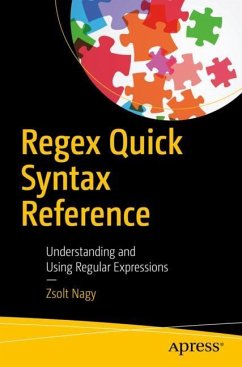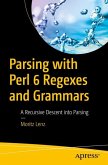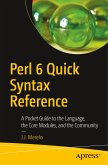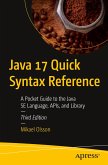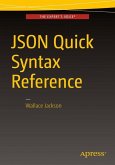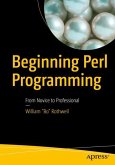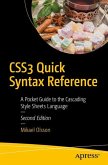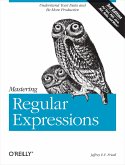This quick guide to regular expressions is a condensed code and syntax reference for an important programming technique. It demonstrates regex syntax in a well-organized format that can be used as a handy reference, showing you how to execute regexes in many languages, including JavaScript, Python, Java, and C#.
The Regex Quick Syntax Reference features short, focused code examples that show you how to use regular expressions to validate user input, split strings, parse input, and match patterns. Utilizing regular expressions to deal with search/replace and filtering data for backend coding is also covered.
You won't find any bloated samples, drawn out history lessons, or witty stories in this book. What you will find is a language reference that is concise and highly accessible. The book is packed with useful information and is a must-have for any programmer.
What You Will LearnFormulate an expression
Work with arbitrary char classes, disjunctions, and operator precedence
Execute regular expressions and visualize using finite state machines
Deal with modifiers, including greedy and lazy loops
Handle substring extraction from regex using Perl 6 capture groups, capture substrings, and reuse substrings
Who This Book Is For
If you have dealt with at least one programming language, chances are you know enough to understand regular expressions, and the examples in this book will help you develop proficiency.
The Regex Quick Syntax Reference features short, focused code examples that show you how to use regular expressions to validate user input, split strings, parse input, and match patterns. Utilizing regular expressions to deal with search/replace and filtering data for backend coding is also covered.
You won't find any bloated samples, drawn out history lessons, or witty stories in this book. What you will find is a language reference that is concise and highly accessible. The book is packed with useful information and is a must-have for any programmer.
What You Will LearnFormulate an expression
Work with arbitrary char classes, disjunctions, and operator precedence
Execute regular expressions and visualize using finite state machines
Deal with modifiers, including greedy and lazy loops
Handle substring extraction from regex using Perl 6 capture groups, capture substrings, and reuse substrings
Who This Book Is For
If you have dealt with at least one programming language, chances are you know enough to understand regular expressions, and the examples in this book will help you develop proficiency.

